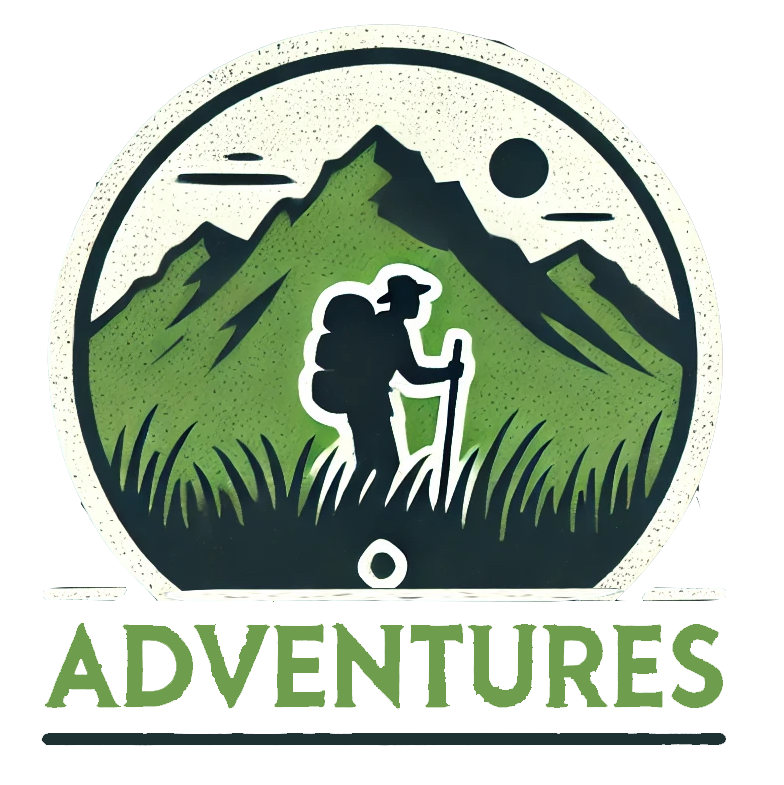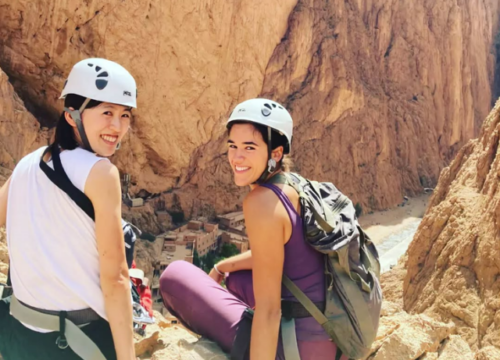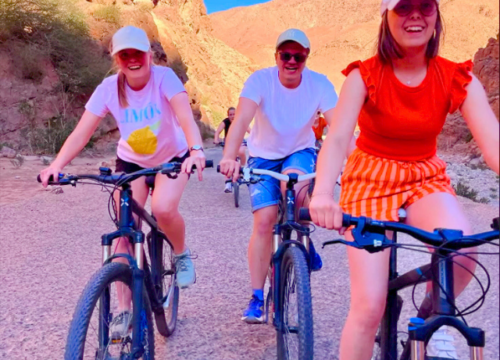Berber Couscous & Tagine Cooking Class
Explore Tours
Immerse yourself in the heart of Berbere culture with or hands-on cooking class at Casa Rural des Pyramids. This unique experience allows you to learn the art of crafting two of Morocco’s most Beloved dishes: couscous and tagine. As you engage in the cooking process, you’ll discover the Importance of these dishes in Berber traditions and family gatherings. From selecting fresh, local ingredients to mastering traditional techniques, this class offers a genuine taste of our culinary Heritage.
During the class, you will also gain insights into the history and significance of couscous or tagine in Moroccan culture, including how these meals are often the centerpiece of social gatherings and celebrations. With the guidance of a skilled local cook, you’ll prepare your chosen dish step-by-step, making this not just a cooking lesson, but an opportunity to connect with the rich flavors and stories of our region.
Included/Exclude
- A welcome introduction to Berber cuisine and its cultural significance.
- All the fresh and local ingredients needed to prepare your dish of choice (couscous or tajine)
- A practical cooking session led by a qualified local chef.
- Step-by-step instructions on traditional cooking techniques.
- Materials and kitchen utensils provided for the course.
- Cultural perspectives on the role of couscous and tajine in the Berber tradition
- A delicious homemade meal (your dish) to enjoy with a breathtaking view.
- Family experiences suitable for all ages.
- Printed or digital take-home receipts.
- Transportation to and from the Pyramids Country House (can be arranged upon request)
- Additional drinks or additional dishes other than those prepared in class.
- Personal expenses or souvenirs
- Teacher tips (optional but appreciated)
Tour Plan
Welcome to Casa Rural des pyramides:
- Arrive at our welcoming space and enjoy a brief introduction to Berber cuisine and its significance in our culture.
Choose Your dish:
- Select whether you would like to learn how to make couscous or tagine. Both options provide a unique insight into our culinary traditions.
Introduction to ingredients:
We ‘ll start by discussing the key ingredients used in your chosen dish, including:
- Couscous: Learn about the grain, its preparation, and the Importance of steam cooking it properly.
- Tagine: Discover the variety of spices, vegetables, and meats traditionally used in this iconic slow-cooked stew.
- Hands-on cooking:
- Get actively involved in the cooking process. Under the guidance of your local instructor, learn techniques that have been passed down through generations.
- Cooking techniques:
As you cook, your instructor will share valuable tips and techniques that highlight the traditional methods of preparing couscous or tagine, such as:
- For couscous: The process of steaming, fluffing, and serving it with a rich vegetable or meat stew.
- For tagine: The layering of flavors and the slow cooking process that brings out the best in the ingredients.
- Enjoying your creation:
- Once your dish Is ready, you’ll gather to savor your homemade meal together at Casa Rural des Pyramides, while enjoying stunning views.
- Culture insights:
- Throughout the class, feel free to engage with your instructor about Berber traditions and cooking practices.
Please inform us of any food restrictions or preferences, including allergies or dietary limitations, so we can tailor the experience to your needs.
Step into the heart of Berber traditions with our immersive cooking class at Casa Rural des Pyramides. Learn to craft authentic couscous and tagine while uncovering their cultural significance. For more information or to reserve your spot, call us at +212 69 45 25 668 or book online now!
- What is couscous and tagine?
- Couscous is a traditional North African dish made from steamed semolina wheat granules, often served with a stew of vegetables, meat, or chicken.
- Tagine is a slow-cooked Moroccan stew prepared in a special clay bot, combining tender meats, vegetables, dried fruits, and a variety of spices, creating a rich and flavorful meal. Both dishes are stable of Berber cuisine and are central to family meals and celebrations.
- What will I learn during the Berber couscous & tagine cooking class?
In this hands-on class, you learn how to make traditional couscous and tagine from scratch. You will discover the ingredients, cooking techniques, and culture significance of each dish. The class covers everything from preparing fresh, local ingredients to mastering the steaming process for couscous and the slow-cooking method for tagine.
- Is this cooking class suitable for beginners?
Yes! This cooking class is designed for participants of all skill levels, whether you’re an experienced cook or a complete beginner. Our local instructor will guide you step-by-step through the process, ensuring you learn the traditional methods used to create these iconic dishes, no prior cooking experience required.
- How long does the Berber & tagine cooking class last?
The class lasts approximately 3 to 4 hours. This gives you plenty of time to get involved in the cooking process ask questions, And enjoy your freshly made couscous and tagine at the end.
- What’s included in the Berber couscous & tagine cooking class last?
The class includes a welcoming introduction, all ingredients needed to prepare your chosen dish, a hands on-cooking sessions with a local cook, and a shared meal at the end. You’ll also gain insights into Berber culinary traditions and cooking techniques that have been passed down for generations.
- What is the difference between couscous and tagine, and which one would l choose?
Couscous is a versatile dish often served as a side or main course with a stew, while tagine is a stew that is slow-cooked in a special clay pot, giving it a unique flavor profile. If you love grains and prefer a light dish, couscous may be your choice. If you’re more interested in slow-cooked meats and stews, tagine is an excellent option. Both are staples in Berber cuisine, and each offers a unique culinary experience.
- What ingredients will I use in the class?
You will use fresh, local ingredients that are essential to Moroccan cooking, including vegetables, meats (lamb, chicken, or beef), and a variety of spices such as saffron, cumin, cinnamon, and turmeric. You’ll also learn about Berber grains like couscous and how to prepare them using traditional methods.
- Is the Berber couscous & tagine cooking class family-friendly?
Yes! This cooking class is suitable for families and individuals of all ages. It’s a fun, educational experience that children and adults alike can enjoy. It’s a wonderful opportunity to learn about Moroccan culture while bonding over food preparation.
- What should I bring to the cooking class?
Answer: we recommend wearing comfortable clothing and closed-toe shoes, as you will be actively involved in the cooking process. If you have any allergies or dietary preferences, please us know in advance so we can accommodate your needs during the class.
- How can a book the Berber couscous & tagine cooking class?
Answer: You can easily book your spot by calling us at + 212 69 45 25668 or by visiting a website. We Recommend booking in advance to secure your place, especially during peak travel seasons.
- Is this cooking class available for private groups or special occasions?
Answer: Yes, we offer private bookings for families, friends, or special groups. If you have a special event or want a more intimate cooking experience, please contact us to discuss options for private classes or customized experiences.
- Where is Casa Rural des pyramides located?
Answer: Casa Rural des Pyramides is located in the scenic village of Ait Lahbib, near Todgha Gorge in Morocco. It offers a peaceful setting for immersive cultural experiences and boasts breathtaking views of the surrounding landscape.
- Can I take home recipes from the class?
Answer: yes, at the end of the class, you will receive the recipes for both couscous and tagine, so you can recreate these delicious dishes at home. This way you can continue to enjoy the flavors of Berber long after the class is over.



